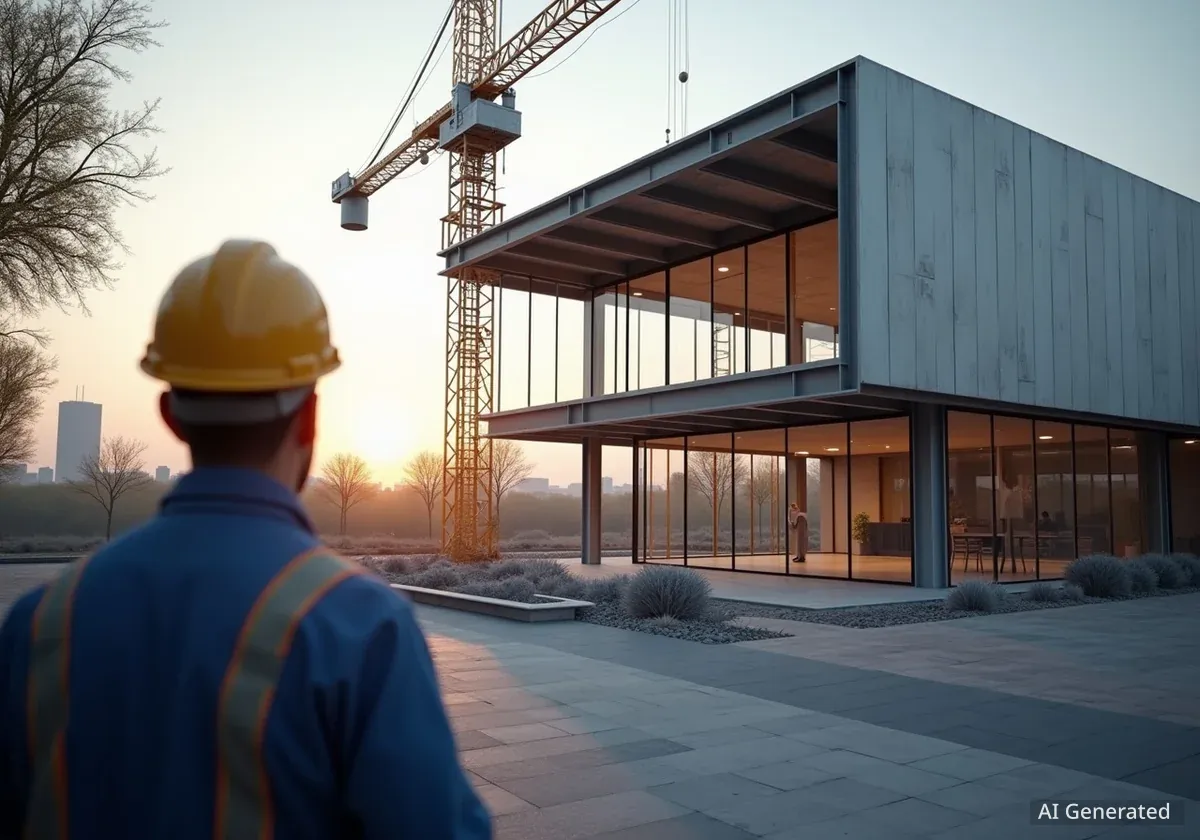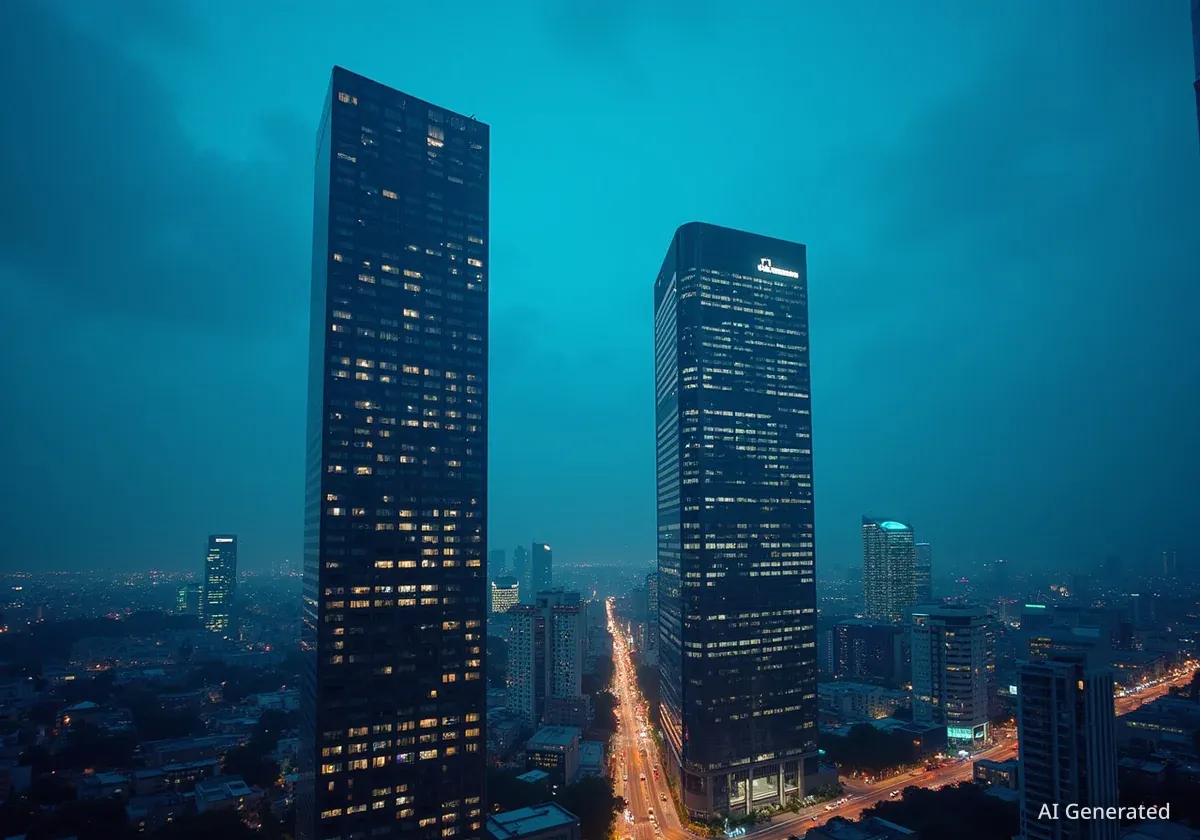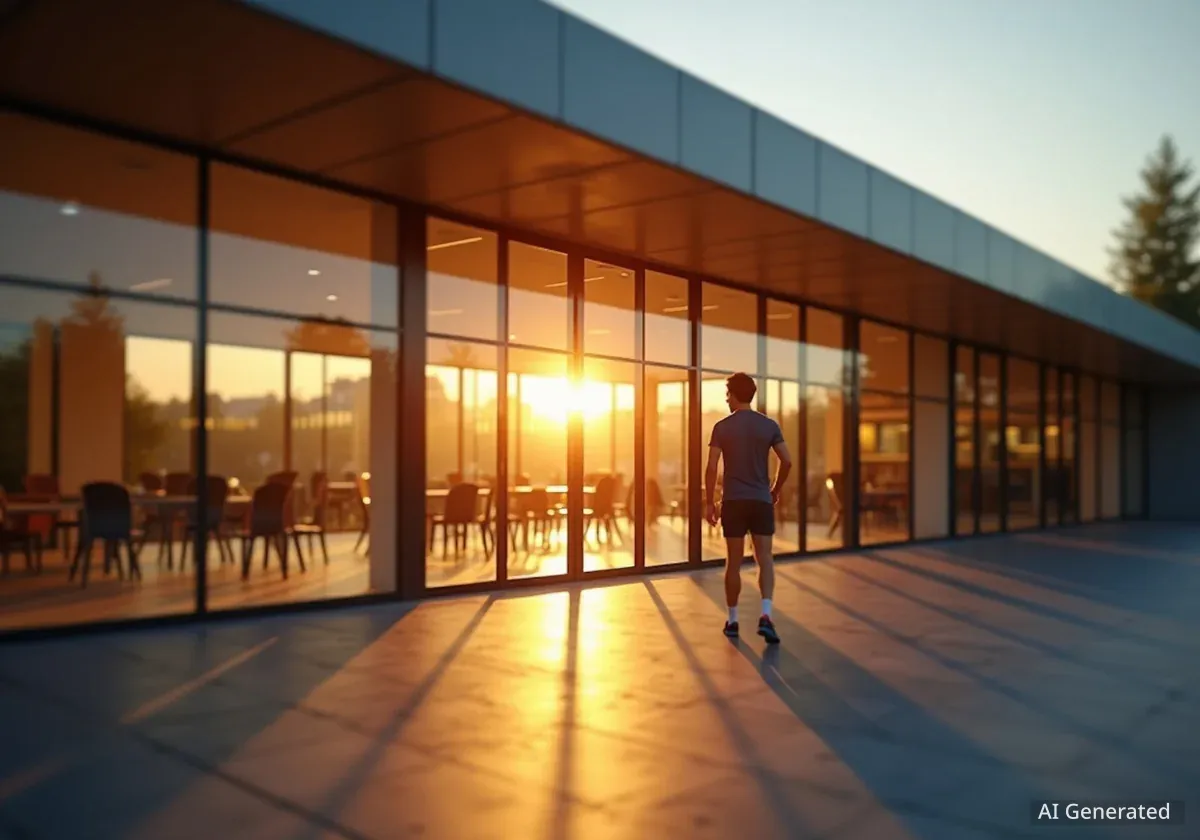David Lloyd Clubs has announced a significant £50 million investment to develop a new luxury health and wellness facility in Manchester. The project, slated to be one of the largest in the company's portfolio, is expected to create over 200 new jobs and is scheduled to open its doors to the public in early 2026.
This major development underscores a broader strategy by the leisure giant to expand its footprint in key urban centers and cater to the growing consumer demand for premium, family-oriented wellness experiences. The new club will be located on a 10-acre site near the city's growing MediaCityUK hub.
Key Takeaways
- David Lloyd Clubs is investing £50 million in a new state-of-the-art facility in Manchester.
- The project is expected to generate more than 200 full-time and part-time positions upon completion.
- The club will feature extensive facilities, including multiple swimming pools, a luxury spa, and dedicated co-working spaces.
- Construction is planned to begin in the third quarter of 2024, with an anticipated opening date in the first quarter of 2026.
A Strategic Move in a Growing Market
The decision to invest heavily in a new Manchester location reflects a calculated move by David Lloyd Clubs to capitalize on the city's robust economic growth and demographic trends. Manchester has seen a significant influx of young professionals and families in recent years, creating a strong target market for premium lifestyle services.
Company executives state that the investment is a direct response to post-pandemic shifts in consumer behavior. There is a heightened awareness of health and well-being, with more individuals and families willing to allocate discretionary income to high-quality fitness and leisure activities. This new club is designed to be a comprehensive destination, not just a gym.
Background on David Lloyd Clubs
Founded in 1982, David Lloyd Clubs operates over 130 clubs across the UK and Europe. The company is known for its large-scale, family-focused facilities that combine fitness, racquets sports, swimming, and social activities. This latest investment is part of a wider five-year growth plan announced in 2023, which aims to modernize existing clubs and open new flagship locations in strategic areas.
According to Glenn Earlam, CEO of David Lloyd Clubs, the Manchester project is a cornerstone of their future strategy.
"Manchester is a dynamic and thriving city, and we see immense potential for a facility of this scale. Our goal is to create a true third space for our members—a place away from home and work where they can focus on their physical and mental well-being, connect with others, and spend quality time with their families."
Inside the New Flagship Facility
The planned Manchester club will be one of the most technologically advanced and feature-rich in the company's network. The design emphasizes a holistic approach to wellness, integrating fitness, relaxation, and social elements under one roof.
Facility by the Numbers
- Total Area: 150,000 square feet
- Swimming Pools: 3 (25m indoor, 20m outdoor, and a dedicated family splash pool)
- Tennis Courts: 10 (5 indoor, 5 outdoor)
- Gym Floor Space: 20,000 square feet
- Spa Facilities: 12,000 square feet with hydrotherapy pools and treatment rooms
The facility is being designed with modern work-life patterns in mind. A key feature will be an expansive 'Clubroom' with a dedicated business lounge and co-working spaces. This addition aims to attract members who work remotely or have flexible schedules, allowing them to combine their work and wellness routines seamlessly.
Family and Children's Amenities
A significant portion of the investment is allocated to family-centric features. The club will include a large-scale DL Kids area with dedicated activity rooms, a soft-play structure, and an outdoor play area. The company plans to offer a comprehensive schedule of after-school clubs and holiday camps, a major draw for its target demographic.
The integration of family services is a core part of the David Lloyd business model. By providing high-quality childcare and activities, the company enables parents to use the gym or spa facilities, making membership a more practical and valuable proposition for the entire household.
Economic Impact and Community Benefits
The £50 million project is poised to deliver a substantial economic boost to the local area. The construction phase alone is projected to create approximately 300 temporary jobs. Once operational, the club will employ over 200 people in a variety of roles, from fitness instructors and spa therapists to management and hospitality staff.
Local officials have welcomed the announcement. Councillor Bev Craig, Leader of Manchester City Council, noted the project's alignment with the city's development goals.
"This is a significant vote of confidence in Manchester's economy. An investment of this magnitude not only creates valuable jobs but also enhances the city's amenities, making it an even more attractive place to live and work. We look forward to working with David Lloyd Clubs as they bring this exciting project to fruition."
The company has also committed to engaging with local suppliers and contractors during the construction and operational phases. This commitment aims to ensure that a significant portion of the investment is retained within the regional economy, benefiting small and medium-sized businesses in the Greater Manchester area.
The Future of the Premium Leisure Sector
This development is indicative of broader trends within the health and wellness industry. The market is increasingly polarized, with budget gym chains at one end and high-end, experience-focused clubs at the other. David Lloyd's strategy firmly targets the premium segment, where consumers are looking for more than just access to equipment.
Industry analysts point out that the 'one-stop-shop' model is becoming increasingly popular. Consumers value convenience and are willing to pay a premium for facilities that cater to all their needs—fitness, relaxation, socializing, and even work. The inclusion of co-working spaces is a particularly modern adaptation, reflecting the rise of hybrid work models.
Competition in this space is growing, with boutique fitness studios and specialized wellness centers also vying for consumer attention. However, the scale and breadth of the David Lloyd offering provide a strong competitive advantage, particularly for families who require a diverse range of activities to justify a single membership fee.
As the Manchester club moves toward its 2026 opening, it will serve as a key test for this high-investment, high-amenity model. Its success could pave the way for similar large-scale developments in other major European cities, further cementing David Lloyd's position as a leader in the premium leisure market.





